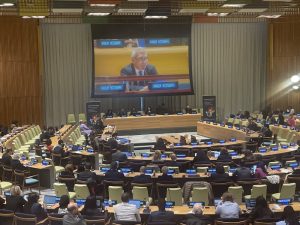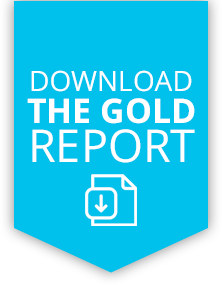Funding Cuts Put Advances in Tuberculosis Diagnosis and Treatment at Risk
World AIDS Day reminds us that collaboration is necessary to slow TB resurgence: Forum of International Respiratory Societies.
Dec. 01, 2025 – The cuts to USAID in early 2025 dealt a devastating blow to the health infrastructure around the world. According to the World Health Organization (WHO), “HIV service disruptions that have resulted from funding challenges in 2025 include staffing shortages, supply chain interruptions, and increased barriers to access for prevention and treatment services.”
This World AIDS Day, GOLD and the Forum of International Respiratory Societies (FIRS) partners urge collaboration among governments, health advocates, and non-government organizations to slow the resurgence of infectious diseases, including HIV and TB. This collaborative effort is necessary to help realize the WHO’s goal of ending the AIDS epidemic by 2030.
In regions like South Africa, the Department of Health is the major source of health service delivery and drug procurement. However, external funding such as that provided by USAID and the Centers for Disease Control includes “support for accurate data collection and collation, support for drug forecasting and procurement, health care worker training, health system strengthening and case finding/support,” said Professor Moherndran Archary, pediatric infectious disease specialist, University of KwaZulu-Natal. “While some of these activities have been absorbed within the Department of Health, the sudden and unexpected withdrawal of these services creates a huge void.”
ATS began in 1905 as the National Association for the Study and Prevention of Tuberculosis. Today, the ATS and other FIRS members, representing the world’s leading respiratory societies, are working to improve lung health globally. Funding cuts like those initiated by the U.S. have a crippling effect on that work, given the substantial role the U.S. plays in global TB control.
Most deaths in patients with HIV are caused by TB. In countries with a high HIV burden, it is often the first sign a person has HIV. Yet, about half of the people living with HIV and tuberculosis are unaware of their co-infection and, therefore, are not receiving appropriate care that could prevent not only serious illness but death, according to WHO.
Without funding support in low and middle-income countries, we could see progress stalled and a reversal of research advances, including:
- Better alignment of TB services with care-seeking behavior
- Markedly improved diagnostic tests
- Shortened drug regimens – now 6 months instead of 18-24 for drug-resistant TB and in 4 months in drug-sensitive TB
- New and repurposed drugs with much improved regimens for drug-resistant TB
- New regimens for prevention and new TB vaccines
- Recognition of social determinants and economic costs of TB.
In materials provided by ATS member Philip Hopewell, MD, an internationally recognized expert in TB, he noted that these advances were the result of increased funding at the global and country level, the bulk of it from the U.S. Dr. Hopewell explained the consequences of lost funding in an ATS Breathe Easy podcast earlier this year.
Shortly after AIDS emerged, it fueled a global resurgence of TB that continues in many low- and middle-income countries. According to the WHO, people living with HIV are 12 times more likely to fall ill with TB compared to people without HIV. New medicines, particularly antiretroviral therapies, have reduced the number of AIDS-related deaths by 70 percent since the peak in 2004.
According to Prof. Archary, the supply of antiretroviral therapies in South Africa have not been affected. However, shortages have been seen in other Sub-Saharan African (SSA) countries. The UNAIDS 2025 fact sheet notes that in SSA, women and girls accounted for 63 percent of all new HIV infections.
A global collaborative effort is needed to fill the gaps in funding and thwart the rollback of the gains we’ve made to prevent HIV infection and death.
Contact for Media:
Dacia Morris, American Thoracic Society, dmorris@thoracic.org
Helen Dugdale, Forum of International Respiratory Societies, Helen.Dugdale@firsnet.org
About the Forum of International Respiratory Societies
The Forum of International Respiratory Societies (FIRS) is an organization comprised of the world’s leading international respiratory societies working together to improve lung health globally. The goal of FIRS is to unify and enhance efforts to improve lung health through the combined work of its more than 70,000 members globally.
FIRS comprises the American College of Chest Physicians (CHEST), American Thoracic Society (ATS), the Asian Pacific Society of Respirology (APSR), Asociación Latino Americana De Tórax (ALAT), European Respiratory Society (ERS), International Union Against Tuberculosis and Lung Diseases (The Union), Pan African Thoracic Society (PATS), the Global Initiative for Asthma (GINA), and the Global Initiative for Chronic Obstructive Lung Disease (GOLD).
The Global Impact of Respiratory Disease report outlines major causes of respiratory disease and lays out recommendations for global action.


